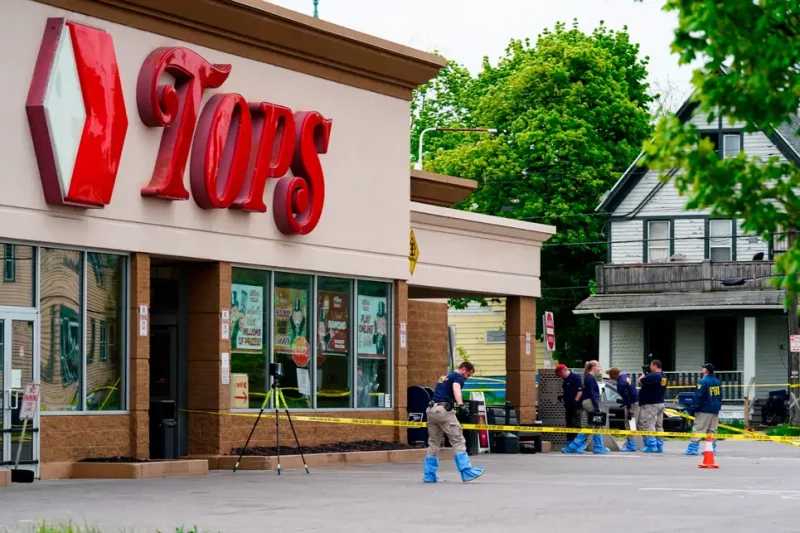Social Media Could Lead To More Racist Violence From White Supremacists
Share
Explore Our Galleries
Breaking News!
Today's news and culture by Black and other reporters in the Black and mainstream media.
Ways to Support ABHM?
By Candace McDuffie, TheRoot
After last month’s massacre in Buffalo, Homeland Security experts claim online white nationalist communities increased domestic terrorism threats.

On Tuesday, the Department of Homeland Security shared that the rise of online hate groups could lead to even more racist violence. Following last month’s massacre in Buffalo, New York—in which ten Black people were murdered—the nation is seeking answers when it comes to domestic terrorism.
Along with the FBI, Homeland Security is working alongside local and state agencies to raise awareness about how social media forums could serve as precursors for violence in the upcoming months.
Social media platforms like Instagram, TikTok and Telegram have become tools for white supremacists—consisting of mostly young men—to spread racist ideology as well as memes and videos. Because of how commonplace they have become, it’s increasingly difficult for law enforcement to monitor.
Michael German, an FBI agent who once infiltrated white hate groups in an effort to thwart them, told the Senate Judiciary Committee Tuesday that differentiating hollow internet threats from actually dangerous and violent people has become a daunting task.
“It seems intuitive that effective social media monitoring might provide clues to help law enforcement prevent attacks,” German stated. “After all, the white supremacist attackers in Buffalo, Pittsburgh and El Paso all gained access to materials online and expressed their hateful, violent intentions on social media.” He then stated: “So many false alarms drown out threats.”
Discover the role that social media plays in racist and domestic terror attacks.
ABHM has an online exhibit dedicated to hateful speech left on our site. The Internet has become a powerful factor in racism’s persistence.
Get more opinions and journalistic analysis like this by following our breaking news.









Comments Are Welcome
Note: We moderate submissions in order to create a space for meaningful dialogue, a space where museum visitors – adults and youth –– can exchange informed, thoughtful, and relevant comments that add value to our exhibits.
Racial slurs, personal attacks, obscenity, profanity, and SHOUTING do not meet the above standard. Such comments are posted in the exhibit Hateful Speech. Commercial promotions, impersonations, and incoherent comments likewise fail to meet our goals, so will not be posted. Submissions longer than 120 words will be shortened.
See our full Comments Policy here.